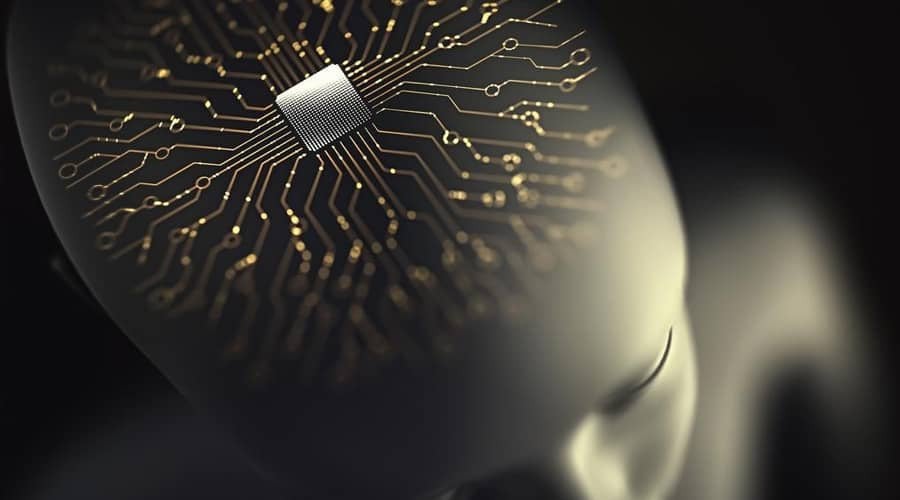Mashhad Malik
Artificial Intelligence (AI) refers to the ability of machines or computer programs to perform tasks that would typically require human intelligence to complete. This includes tasks such as recognizing speech, understanding natural language, making decisions, and solving problems. AI relies on algorithms and mathematical models to process large amounts of data and learn from it to improve its performance over time. There are several approaches to AI, including machine learning, deep learning, and natural language processing, which are used in various applications such as voice assistants, self-driving cars, and healthcare. The goal of AI is to create machines that can think, reason, and make decisions like humans, but also to exceed human limitations in areas such as processing speed and accuracy.
Humans are a brilliant species known scientifically as Homo sapiens. They possess advanced cognitive abilities that allow them to think critically, solve complex problems, and adapt to their surroundings. These abilities have enabled humans to thrive and become the dominant species on the planet. However, humans have also invented computers to enhance their capabilities and improve efficiency in various tasks, including complex problem-solving. Despite the remarkable advancements made in the field of Artificial Intelligence (AI), computers still rely on explicit instructions from humans to operate effectively.
AI has demonstrated impressive capabilities in processing vast amounts of information, solving specific problems, and even surpassing humans in challenging games. The advancements made in AI have led to significant progress in social, political, and economic domains. AI has the potential to benefit humanity in various sectors, including healthcare, education, and environmental sustainability. However, AI also has its limitations.
One of the key limitations of AI is its inability to adapt to entirely new situations without significant reprogramming. While humans can learn from both information and experiences, allowing them to adapt and grow in ways that AI cannot, AI is currently reliant on predefined data sets. Moreover, humans possess self-awareness and critical thinking abilities that set them apart from AI. Humans can make predictions based on intuition in addition to using data, a task that AI currently struggles with.
Another significant difference between humans and AI is how they understand the world. Humans possess a well-rounded understanding due to their ability to learn from experiences and use common sense. The ability to comprehend the world is a crucial aspect of intelligence, and humans excel in this area due to their common sense and experience. In contrast, AI is highly proficient in processing information and solving specific problems, showcasing a different kind of intelligence.
Furthermore, unlike robots, humans are guided by emotions, which can fuel creativity, empathy, and motivation. However, emotions can also cloud judgment, requiring humans to develop emotional intelligence to navigate them effectively. By harnessing their emotional intelligence, along with logic and reason, humans can achieve growth in their endeavours.
In medicine, AI is increasingly used for precise and efficient diagnoses, offering valuable assistance to doctors. However, AI currently lacks the empathetic qualities and the ability to consider nuanced human factors that experienced doctors can bring to the table. While AI may struggle with tasks requiring common-sense reasoning at present, the field is constantly evolving.
Despite its limitations, AI can be a valuable tool in the education sector. It can personalize learning experiences, analyze vast amounts of educational data to identify student needs, and even provide automated feedback. However, AI currently lacks the human qualities of empathy, common sense, and emotional intelligence. This is where humans shine.
The use of AI can augment human skills, leading to better performance in various fields. For example, AI can assist doctors in diagnoses, personalize learning experiences for students, and analyze data to develop solutions for food scarcity and environmental challenges. This collaboration between AI and human ingenuity can ultimately lead to increased efficiency, improved health services, poverty reduction, and a more sustainable future. By leveraging the strengths of AI and human intelligence, we can achieve remarkable progress in various domains while also addressing the limitations of AI.
Human intelligence is a complex and multifaceted phenomenon that encompasses numerous aspects, including emotions, comprehension, creativity, and imagination. These elements make human intelligence unique and versatile, surpassing the capabilities of artificial intelligence (AI), which is limited to processing data and following predefined rules.
Emotions are a vital aspect of human intelligence that fuels creativity, empathy, and motivation. Emotions are essential for effective communication, social connections, and decision-making. Humans can experience a wide range of emotions, such as joy, sadness, anger, and fear, which are essential for effective social interaction. However, emotions can also cloud judgment, requiring humans to develop emotional intelligence to navigate them effectively.
Comprehensions are another essential aspect of human intelligence that enables us to understand the world, make judgments, and appreciate nuances. Humans possess a well-rounded understanding of the world due to their ability to learn from experiences and use common sense. The ability to comprehend the world is a crucial aspect of intelligence, and humans excel in this area due to their common sense and experience. In contrast, AI is highly proficient in processing information and solving specific problems, showcasing a different kind of intelligence. However, AI lacks the ability to understand abstract concepts, appreciate nuances, and make judgments based on context.
Creativity is another area where human intelligence shines. Creativity is the ability to generate novel and useful ideas and solutions. Humans can create new ideas and designs, innovate, and develop new technologies. Human creativity stems from their ability to imagine, think outside the box, and make connections between seemingly unrelated concepts. In contrast, AI is limited to predefined algorithms and rules.
Imagination is yet another area where human intelligence surpasses AI. Imagination is the ability to form mental images of things that do not exist in reality. Imagination is a crucial aspect of human intelligence that enables us to explore new possibilities and envision a better future. While AI can analyze data and make predictions, it is limited to the available data and cannot imagine things beyond its programming.
In summary, human intelligence encompasses various aspects that make it unique and versatile, surpassing the capabilities of AI. Emotions fuel human motivation, empathy, and creativity, while comprehensions enable us to understand the world, make judgments, and appreciate nuances. Creativity and imagination enable us to generate new ideas, innovate, and envision a better future. While AI can augment human intelligence in various fields, it cannot replace the versatility and sophistication of human intelligence.
Please, subscribe to the YouTube channel of republicpolicy.com
















































